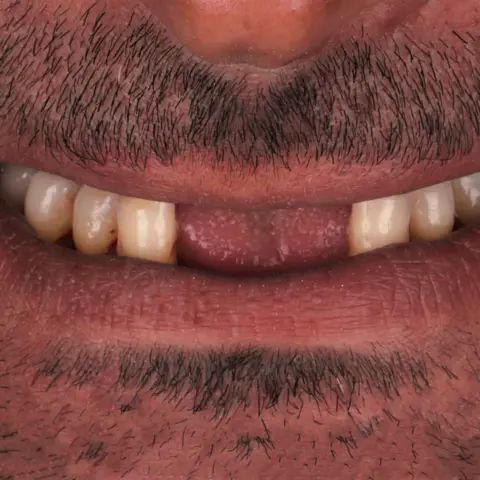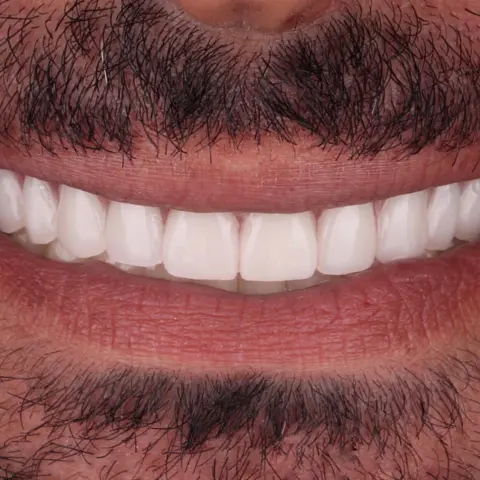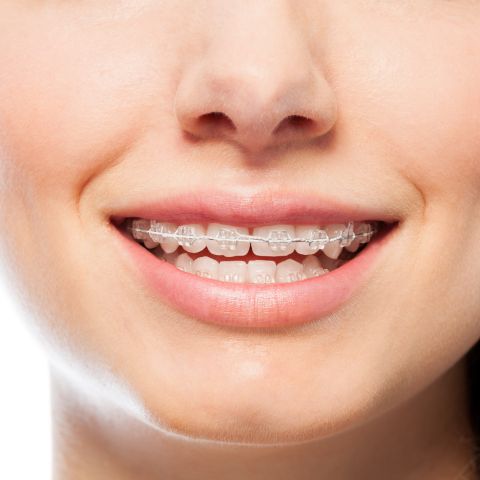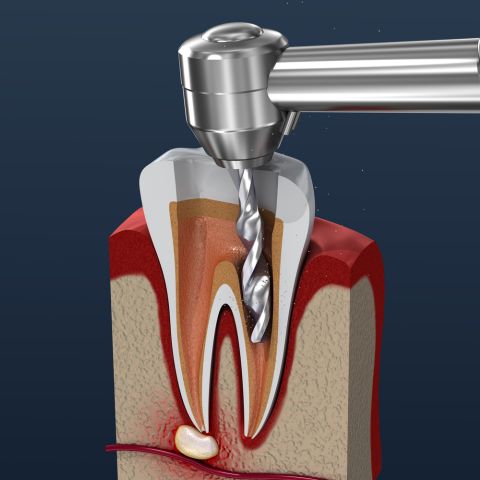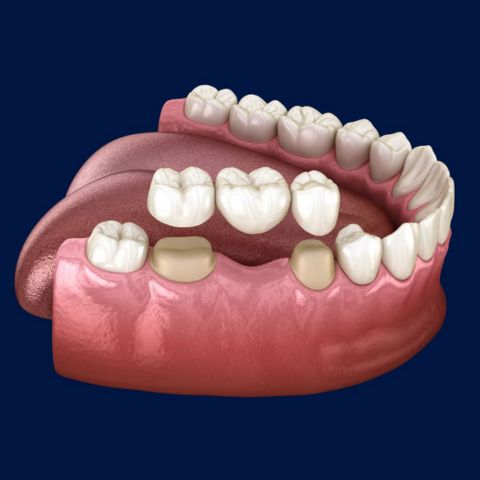

Dental bridge treatment is a dental restoration procedure used to replace one or more missing teeth. The aim of this treatment is to restore the function and appearance of the teeth, maintain the integrity of the dental arch, and prevent potential problems such as tooth movement, bite issues, or gum diseases.
The dental bridge consists of one or more artificial teeth (called pontics) that are anchored to the adjacent natural teeth or dental implants. These adjacent teeth or implants, which serve as supports for the bridge, are called abutments. The pontics are custom-made to match the color, shape, and size of the patient's natural teeth.
There are several types of dental bridges:
- Traditional bridge: This is the most common type of dental bridge. It involves placing a crown on each of the abutment teeth and attaching the pontic(s) in between. This type of bridge works well when there are healthy teeth on both sides of the missing tooth or teeth.
- Cantilever bridge: This type of bridge is used when there is only one healthy adjacent tooth to support the pontic. It involves attaching the pontic to a single crown on the abutment tooth. Cantilever bridges are less common due to their limited support and potential for causing strain on the abutment tooth.
- Maryland bridge: Also known as a resin-bonded bridge, this type involves attaching the pontic to the abutment teeth using metal or porcelain wings. The wings are bonded to the back of the adjacent teeth, which reduces the need for removing tooth enamel. Maryland bridges are a more conservative option compared to traditional bridges, but they may not be as strong or long-lasting, especially in areas with heavy biting forces.
- Implant-supported bridge: This type of bridge is supported by dental implants instead of natural teeth. Typically, one implant is placed for each missing tooth, and the implants are connected to form the bridge. In some cases, a pontic can be suspended between two implant-supported crowns. Implant-supported bridges are considered the most stable and long-lasting option because they don't rely on adjacent teeth for support and help preserve jawbone health.
Dental bridges offer several benefits, making them a popular option for tooth replacement:
- Functionality: They restore the function of your teeth, allowing you to eat and speak normally.
- Aesthetics: Dental bridges are designed to match the look of your natural teeth, improving your smile and facial aesthetics.
- Prevention: They help prevent remaining teeth from shifting out of place, which can lead to bite issues and jaw problems.
- Speed: The process of getting a dental bridge is relatively quick, typically requiring only two or three dental visits.
- Non-invasive: Unlike dental implants, getting a dental bridge doesn't involve surgery, making it a less invasive option.
However, there are a few potential drawbacks:
- Durability: While dental bridges are durable, they may not last as long as dental implants. With proper care, a dental bridge can last 10 to 15 years.
- Impact on adjacent teeth: Dental bridges rely on adjacent teeth for support. These teeth need to be filed down and fitted with crowns, which can make them more prone to decay and disease.
- Bone loss: Dental bridges don't stimulate the jawbone like dental implants do, which can lead to bone loss over time.
- Maintenance: Bridges require careful cleaning under and around the replaced tooth, which can be challenging for some people.
When undergoing dental bridge treatment, you can expect a series of appointments and steps to ensure the proper fit and function of your bridge. Here's an outline of what you can expect during the process:
- Consultation and treatment planning: During the initial appointment, your dentist will examine your teeth, take X-rays if necessary, and discuss your treatment options. If a dental bridge is deemed suitable, they will determine the type of bridge best suited for your situation.
- Tooth preparation: If you're getting a traditional, cantilever, or Maryland bridge, your dentist will prepare the abutment teeth by removing some of the tooth enamel to make room for the crowns. If you're getting an implant-supported bridge, the dental implants will be surgically placed and given time to integrate with the jawbone, which may take several months.
- Impressions and temporary bridge: Your dentist will take impressions of your prepared teeth and send them to a dental lab, where your custom bridge will be fabricated. Meanwhile, they may place a temporary bridge to protect the prepared teeth and maintain your appearance.
- Bridge placement: When your custom bridge is ready, your dentist will remove the temporary bridge and check the fit, color, and shape of the new bridge. If everything looks and feels right, they will cement the bridge in place. For implant-supported bridges, the dentist will attach the bridge to the implants once they have integrated with the jawbone.
The recovery process after receiving a dental bridge is typically straightforward and quick. After the procedure, you may experience some sensitivity in your teeth and gums, which usually subsides in a few days. You can manage any discomfort with over-the-counter pain relievers, and your dentist may also recommend a special mouth rinse to keep the area clean.
Eating soft foods can help ease any initial discomfort, gradually introducing harder foods as your mouth adjusts to the bridge. Dental hygiene is crucial during this period. You should brush and floss regularly, taking special care to clean under and around the bridge to prevent any buildup of plaque or food particles.
A dental bridge can last anywhere between 5 to 15 years, and with excellent oral hygiene and regular dental check-ups, it can even last over 20 years. The longevity of a dental bridge depends on several factors, including the quality of the materials used, the health of the supporting teeth, and your personal oral hygiene habits.
Caring for a dental bridge involves a commitment to good oral hygiene. This includes brushing your teeth twice a day with fluoride toothpaste and flossing daily to remove plaque and food debris. It's particularly important to clean under and around the bridge to prevent the buildup of plaque.
Additionally, maintaining a healthy diet that limits sugary and acidic foods can also contribute to the longevity of your dental bridge. Regular dental check-ups and professional cleanings are also crucial to monitor the condition of your dental bridge and ensure any issues are addressed promptly. This combination of home care and professional maintenance will help ensure your dental bridge lasts as long as possible.
The cost of a dental bridge in Turkey is significantly lower compared to Western Europe and the USA. While the exact price depends on various factors such as the type of bridge, the materials used, and the complexity of the procedure, you can expect to pay about 70-80% less in Turkey.
For example, while a dental bridge might cost between $3,500 to $5000 in the USA and Western Europe, in Turkey, the same procedure typically ranges from $500 to $700.
Choosing Elara Medical Tourism Agency for your dental bridge procedure in Turkey comes with numerous benefits:
1. Highly Skilled Dentists: We collaborate with some of the most qualified and experienced dentists in Turkey, ensuring you get top-tier dental care.
2. Quality and Safety: The clinics we partner with meet international standards of quality and safety. You can be confident about receiving excellent care in a safe environment.
3. Customized Treatment Plan: Every patient's dental needs are unique. Our team will work with you to create a treatment plan tailored to your specific situation and preferences.
4. Transparent Pricing: We offer clear pricing for our services, meaning there are no hidden costs. You get high-quality dental care at an affordable price.
5. Complete Support: From the moment you reach out to us, we are here to guide you through the process. We assist with everything from travel arrangements to accommodation and transportation, ensuring a hassle-free medical tourism experience.
6. Cultural Comfort: Traveling for medical procedures can be daunting, but our team at Elara Medical Tourism Agency helps ease this process by assisting with language barriers and cultural differences. We strive to make your stay in Tukey as comfortable and pleasant as possible.
Choose Elara Medical Tourism Agency for your dental bridge procedure in Turkey to enjoy world-class dental care, personalized service, and a smooth, worry-free medical journey.
